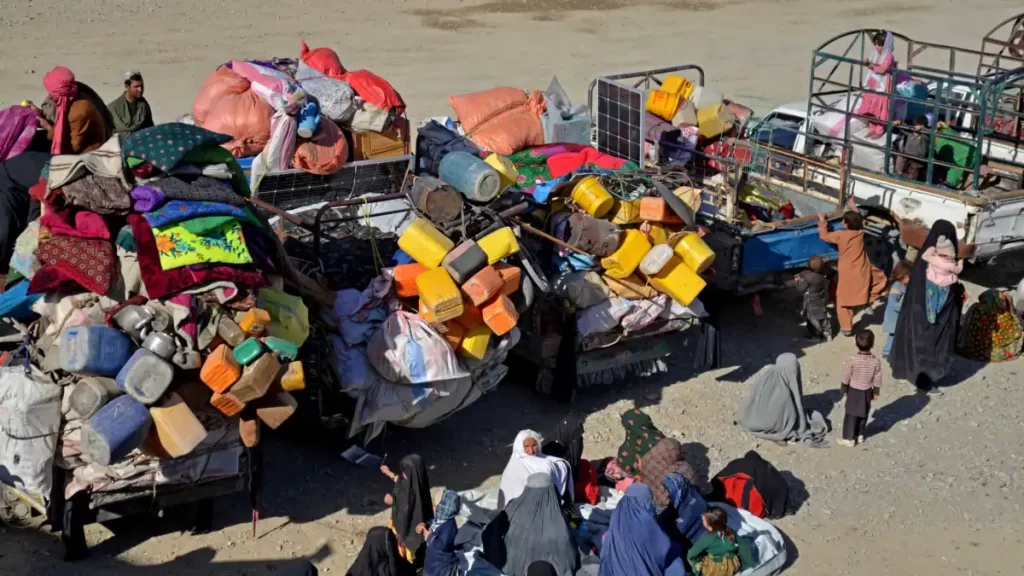Afghan refugees continue to face deportations from Pakistan and Iran, with around 2,000 individuals arriving in Afghanistan daily. Since the start of 2024, over 400,000 refugees have been forcibly deported, with Pakistan responsible for 75% of these deportations, according to Qari Yusuf Ahmadi, spokesperson for the Taliban’s commission on returnees.
“They are being well served here,” Ahmadi claimed, “and efforts are being made to provide them with additional amenities of life.”
The United Nations warned on Monday that Afghanistan’s recovery from years of conflict and entrenched poverty is increasingly challenged by worsening humanitarian and economic conditions. The decline in foreign aid since the Taliban took power almost three years ago has exacerbated these issues.
Taliban officials have denounced the deportations of Afghan migrants by Iran and Pakistan. They call for better coordination in repatriating displaced families in line with international laws and considering Afghanistan’s situation. Tehran and Islamabad claim their deportation drives target only undocumented Afghan migrants, enforcing laws similar to those in countries around the world.
Pakistan began its crackdown on illegal residents, including Afghan refugees, last October. Islamabad blames them for a surge in nationwide terrorist acts. Since then, nearly 600,000 Afghans have returned to their home country. Pakistani officials claim “more than 95%” returned voluntarily. They insist their crackdown does not target the 1.4 million officially declared Afghan refugees or the nearly 800,000 migrants holding Afghan citizenship cards.
The U.N. estimates that more than 1.5 million refugees have returned to Afghanistan from Pakistan and Iran since January 2023. This includes voluntary returnees. On Monday, the U.N. humanitarian agency stated that more than half of Afghanistan’s population, 23.7 million people, including 9.2 million children, need relief assistance.
The U.N. appealed for around $3 billion in funding to support Afghan humanitarian programs in 2024. However, the appeal is only 20% funded six months into the year. This shortfall hampers relief activities in Afghanistan, where 48% of people live below the poverty line.
Critics attribute the aid decline to the Taliban’s restrictions on Afghan women’s access to education and work. The fundamentalist rulers have barred girls from seeking education beyond the sixth grade and prohibited many women from public and private workplaces.
On Monday, the U.N. noted that the Taliban’s restrictive policies on women and girls’ rights have hindered their access to assistance and services and their involvement in public life.


